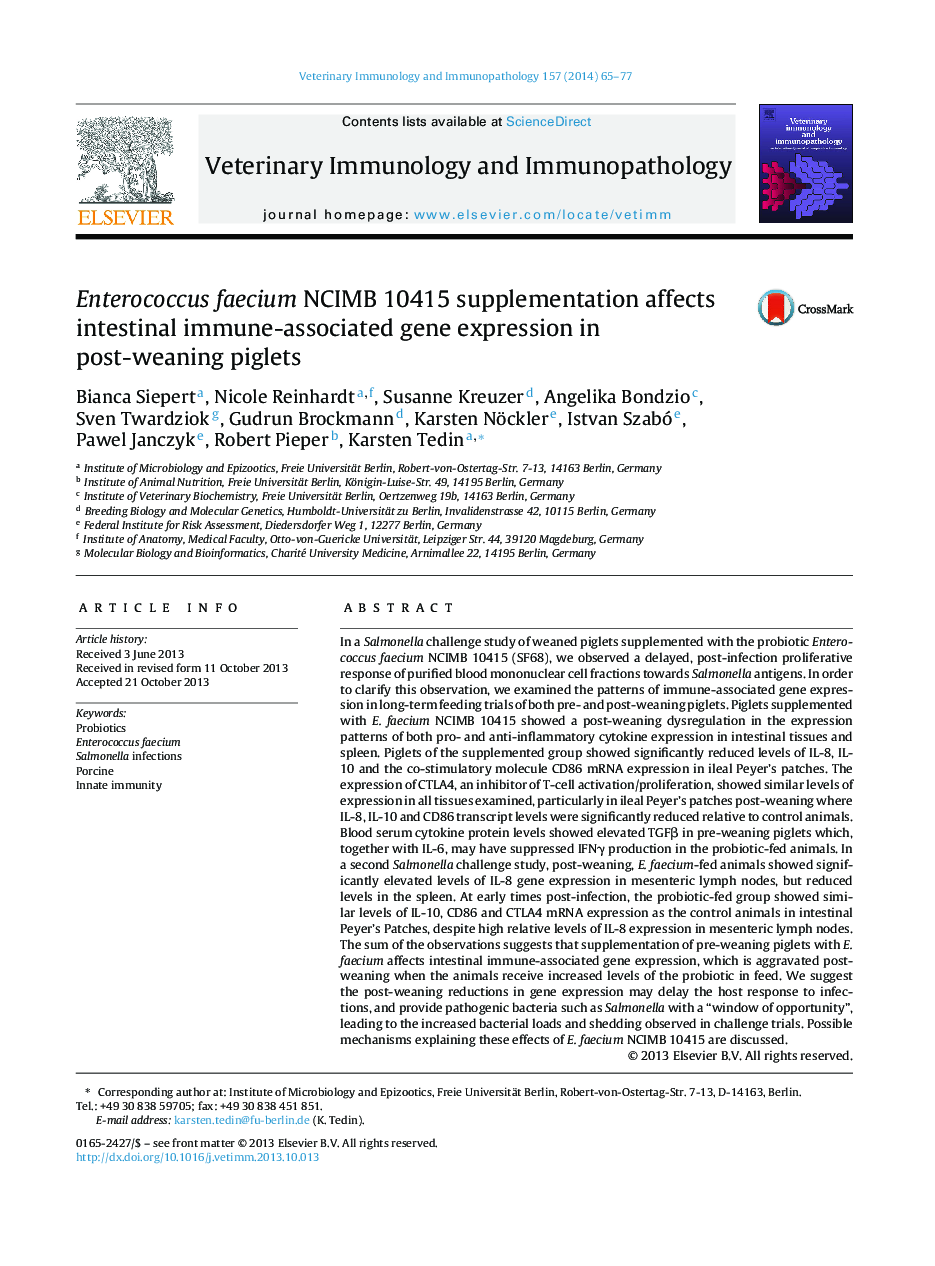| Article ID | Journal | Published Year | Pages | File Type |
|---|---|---|---|---|
| 5796845 | Veterinary Immunology and Immunopathology | 2014 | 13 Pages |
In a Salmonella challenge study of weaned piglets supplemented with the probiotic Enterococcus faecium NCIMB 10415 (SF68), we observed a delayed, post-infection proliferative response of purified blood mononuclear cell fractions towards Salmonella antigens. In order to clarify this observation, we examined the patterns of immune-associated gene expression in long-term feeding trials of both pre- and post-weaning piglets. Piglets supplemented with E. faecium NCIMB 10415 showed a post-weaning dysregulation in the expression patterns of both pro- and anti-inflammatory cytokine expression in intestinal tissues and spleen. Piglets of the supplemented group showed significantly reduced levels of IL-8, IL-10 and the co-stimulatory molecule CD86 mRNA expression in ileal Peyer's patches. The expression of CTLA4, an inhibitor of T-cell activation/proliferation, showed similar levels of expression in all tissues examined, particularly in ileal Peyer's patches post-weaning where IL-8, IL-10 and CD86 transcript levels were significantly reduced relative to control animals. Blood serum cytokine protein levels showed elevated TGFβ in pre-weaning piglets which, together with IL-6, may have suppressed IFNγ production in the probiotic-fed animals. In a second Salmonella challenge study, post-weaning, E. faecium-fed animals showed significantly elevated levels of IL-8 gene expression in mesenteric lymph nodes, but reduced levels in the spleen. At early times post-infection, the probiotic-fed group showed similar levels of IL-10, CD86 and CTLA4 mRNA expression as the control animals in intestinal Peyer's Patches, despite high relative levels of IL-8 expression in mesenteric lymph nodes. The sum of the observations suggests that supplementation of pre-weaning piglets with E. faecium affects intestinal immune-associated gene expression, which is aggravated post-weaning when the animals receive increased levels of the probiotic in feed. We suggest the post-weaning reductions in gene expression may delay the host response to infections, and provide pathogenic bacteria such as Salmonella with a “window of opportunity”, leading to the increased bacterial loads and shedding observed in challenge trials. Possible mechanisms explaining these effects of E. faecium NCIMB 10415 are discussed.
